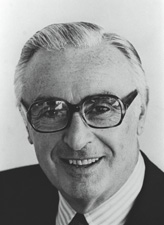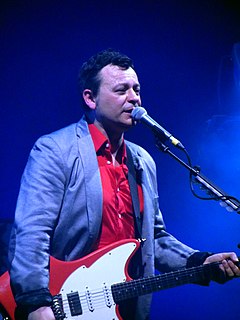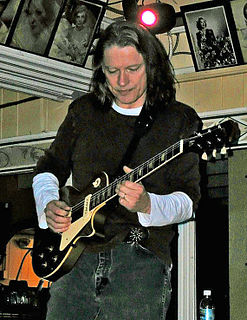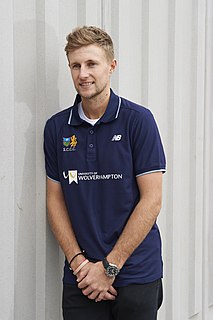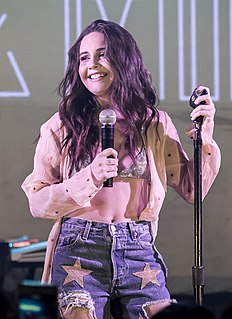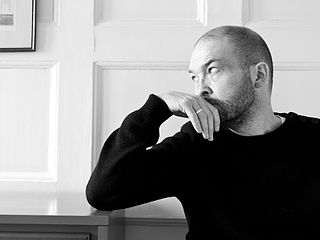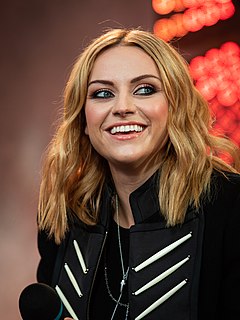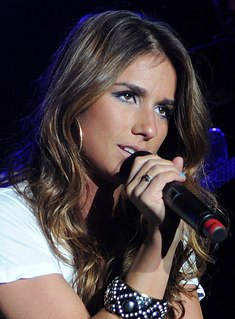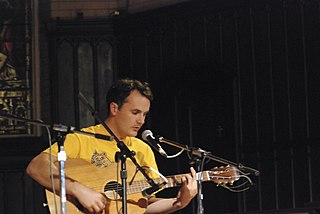A Quote by Hayley Kiyoko
I've always wanted my lyrics to say something meaningful and, you know, you always want to tell a message with your art. So yes, as I continue to write music, I will write about things that are real and things that I feel aren't written about a lot.
Related Quotes
Something I always tell students is, when you're writing something, you want to write the first draft and you want it to come out easily in the beginning. If you're afraid to say what you really have to say, you stammer. [...] You're judging yourself, you know, thinking about your listener. You're not thinking about what you're saying. And that same thing happens when you write.
One of the things I always underscore when I teach criticism is that young critics, or would be critics, frequently have this illusion that if they write about music they're somehow part of music, or if they write about movies they're part of movies, or of they write about theater they're part of theater, or write about literature. Writing is a part of literature, we belong the species of literature. If you add all the music reviews together that have ever been written, they don't create two notes of music.
I don't find a lot of people actually saying things through music any longer. They are not trying to say anything with their music, they just want to make money with it. I think it's important to actually say something real, something meaningful, rather than just write some trash and try to sell it.
The one good thing about a movie and music and stuff like that: Sometimes it's a counterpoint between the movie and the music itself, the difference and the tension they build together. I think that could be something that helped with me, because when I write songs now, I write lyrics a bit like that. I try to make the music be an interesting twist on the lyrics and help tell the story in a - I don't tell crazy stories, you know? So a lot of times, the twist is in the subtleties. The twist is in the way the story's told.
I want my music to be something that people use in order to access parts of themselves. So in that sense, every piece I write is about all emotions at once, about the lines in between. It's never only about one thing or another. It's emotionally getting at those things that we can't really describe - things for which we don't have labels. So yes, it's about something, and it has a use. It's neither about nothing nor about something concrete - it's about what you bring to it as a listener.
I always wanted to have a young female artist that would tell me the truth about life and not only talk about the good things or the things that were exciting or interesting but also talk about the things that people in general are skeptical to talk about- the bad things that do happen. A good 50% of our lives is things that are happening that we're not necessarily super thrilled about and I feel like that's missing from pop music a lot of the time so my main goal is to be truthful about everything and not just specific things.
I personally feel that there's a lot of music journalism that is dominated by genre, because you need a language in which to write, but actually the things that strike people about music, are very hard to write about, and its sonic connections, it's a sense of harmony that I think we all have even if we don't know how to express it - it's something musical, it's synapse connections in our brain.
It's a beautiful idea to focus on how everything is temporary and always in flux. It may feel bad now, but it will feel good later, and vice versa. To write about those things brings this satisfying feeling as a creative person. There's a lot of music out there that's like, "I'm so mad! I'm sad! I'm into skulls and crossbones and the color black," and that's just meaningless and shallow. So much of metal is about that and it's hard to find metal that is substantial and meaningful in terms of its content.
The single best piece of advice I give to aspiring writers is to always write about things that they know. I suggest that they write about people and places and events and conflicts they are familiar with. That way their writing will be real and hopefully readers will respond to it. I try to take my own advice.


